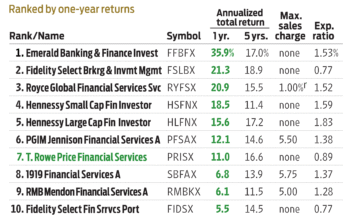How Health Insurance Can Save You in 2026
In the tapestry of life, good health is often considered our greatest wealth. However, even the healthiest among us are not immune to unexpected illnesses, accidents, or the natural progression of age that can necessitate medical intervention. While the physical and emotional toll of a health crisis is immense, the financial impact can be equally devastating, capable of wiping out years of savings, forcing individuals into debilitating debt, and ultimately leading to financial ruin.
In India, where out-of-pocket medical expenses constitute a significant burden for many, health insurance emerges not merely as a beneficial financial product, but as an essential lifeline. It acts as a formidable barrier between you and the exorbitant costs of modern healthcare, transforming a potentially catastrophic financial event into a manageable one. This article will thoroughly explore how health insurance serves as a critical safeguard, detailing the specific ways it protects your financial well-being and prevents the downward spiral into medical debt and financial ruin.
The Dire Cost of Illness: Why Health Insurance is Your Financial Fortress
The rising tide of healthcare costs in India is a stark reality. From basic consultations to complex surgeries, the price tag for medical care can quickly escalate beyond an average individual’s means. Without health insurance, even a minor health setback can trigger a chain reaction leading to financial distress.
Preventing the Depletion of Your Life Savings
Imagine years of diligent saving for a dream home, a child’s education, or a comfortable retirement. Now, envision those savings being completely wiped out by a single medical emergency. This grim scenario is a common reality for many uninsured individuals. A major illness like cancer, a heart attack, or a severe accident can incur bills running into lakhs, sometimes even crores, of rupees.
- Hospitalization Expenses: A significant portion of medical expenses comes from inpatient care. Room rent in private hospitals, ICU charges, operation theatre costs, nursing fees, and doctor’s consultation fees add up rapidly. Without insurance, these are directly borne by the patient or their family, often requiring them to liquidate fixed deposits, sell assets, or take high-interest loans.
- Specialized Treatments: Conditions requiring chemotherapy, dialysis, organ transplants, or prolonged critical care are incredibly expensive. These aren’t one-time costs but often continuous expenses that can drain resources over months or even years. Health insurance ensures these treatments are accessible without dismantling your financial foundation.
Health insurance acts as a buffer, ensuring that your hard-earned savings remain intact for their intended purposes, rather than being diverted to unexpected medical bills.
Shielding You from Crippling Medical Debt
When savings are exhausted, the next step for many is borrowing. This can involve personal loans with high-interest rates, loans from friends and family, or even selling off precious assets like gold or property. Medical debt is a leading cause of bankruptcy in many parts of the world, and India is no exception.
- High-Interest Loans: In times of emergency, people often resort to quick loans, which typically come with exorbitant interest rates. Repaying these loans can become a long-term burden, impacting monthly budgets and delaying other financial goals.
- Asset Liquidation: Forced selling of assets at unfavorable prices to meet immediate medical expenses can lead to significant financial loss and long-term regret.
- Cycle of Debt: Once caught in the cycle of medical debt, it can be incredibly difficult to break free. The stress of constant repayments, coupled with the lingering health issue, can severely impact quality of life.
Health insurance, by covering a significant portion of these costs, prevents you from entering this perilous cycle of debt, preserving your creditworthiness and financial dignity.
Tax Benefits and Smart Financial Planning
In India, premiums paid for health insurance policies are eligible for deductions under Section 80D of the Income Tax Act. This means you can reduce your taxable income by investing in health insurance, translating into direct tax savings. This makes health insurance not just a protective measure but also a strategic component of your overall financial plan, allowing you to save money while simultaneously securing your health.
Peace of Mind: An Invaluable Asset
Beyond all the tangible financial benefits, the greatest asset health insurance provides is peace of mind. Knowing that you and your loved ones are protected against unforeseen medical emergencies alleviates immense stress and anxiety. It frees you from the constant worry of “what if” a health crisis strikes, allowing you to live a more fulfilling life, focus on your well-being, and enjoy your family, without the constant dread of financial collapse due to medical bills. This emotional security is truly priceless.
Summary: Your Financial Shield Against Health Crises
Health insurance is an indispensable financial tool that protects individuals and families from the devastating costs of medical emergencies. It is a proactive investment in financial stability and overall well-being.
Here’s a concise overview of how it prevents financial ruin:
- Preserves Savings: Prevents the depletion of your hard-earned savings for medical expenses.
- Averts Debt: Stops you from taking high-interest loans or liquidating assets to cover medical bills.
- Ensures Quality Care: Provides access to better hospitals and timely, effective treatments, including cashless facilities.
- Covers Critical Illnesses: Offers lump sum payouts for severe conditions, supporting treatment and recovery.
- Comprehensive Coverage: Includes pre- and post-hospitalization costs, covering the full spectrum of treatment.
- Manages OPD Expenses: Some plans cover outpatient consultations and diagnostics, reducing routine burdens.
- Protects Earning Potential: Allows focus on recovery, reducing long-term impact on income.
- Promotes Prevention: Encourages early detection through free health check-ups, saving future costs.
- Offers Tax Benefits: Provides deductions on premiums, enhancing financial planning.
- Delivers Peace of Mind: Frees you from financial worries during health crises, allowing focus on healing.
Conclusion: Don’t Gamble with Your Health and Wealth – Insure Today
The notion that medical emergencies only happen to others is a dangerous fallacy. In an era of escalating healthcare costs and unpredictable health challenges, being uninsured is akin to gambling with your entire financial future. A single illness or accident can swiftly dismantle years of prudent financial planning, pushing individuals and families into a vortex of debt and despair.
Health insurance is not an expense; it is an essential investment in your long-term financial security and peace of mind. It empowers you to prioritize your health without the paralyzing fear of medical.



